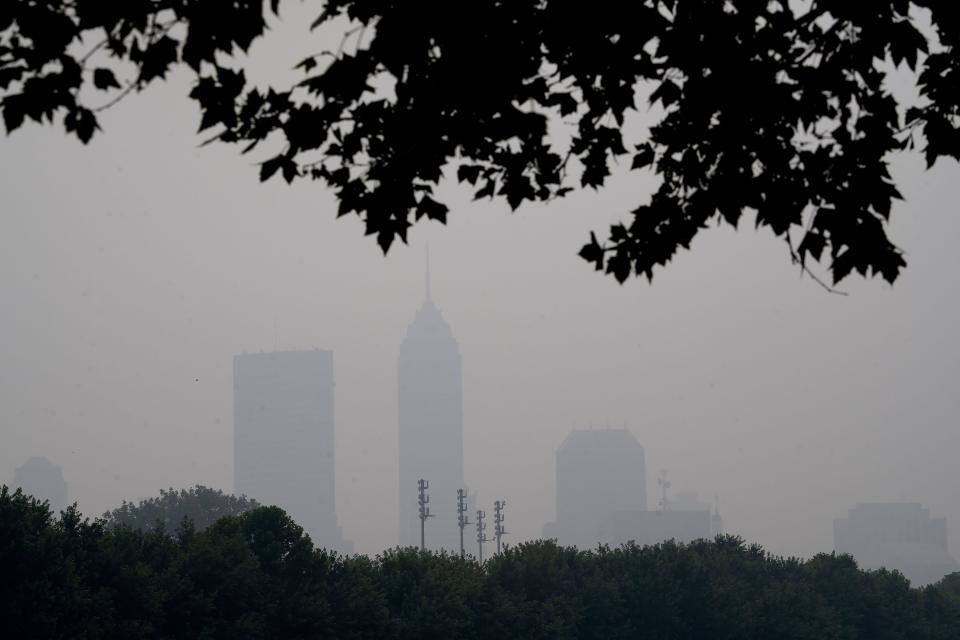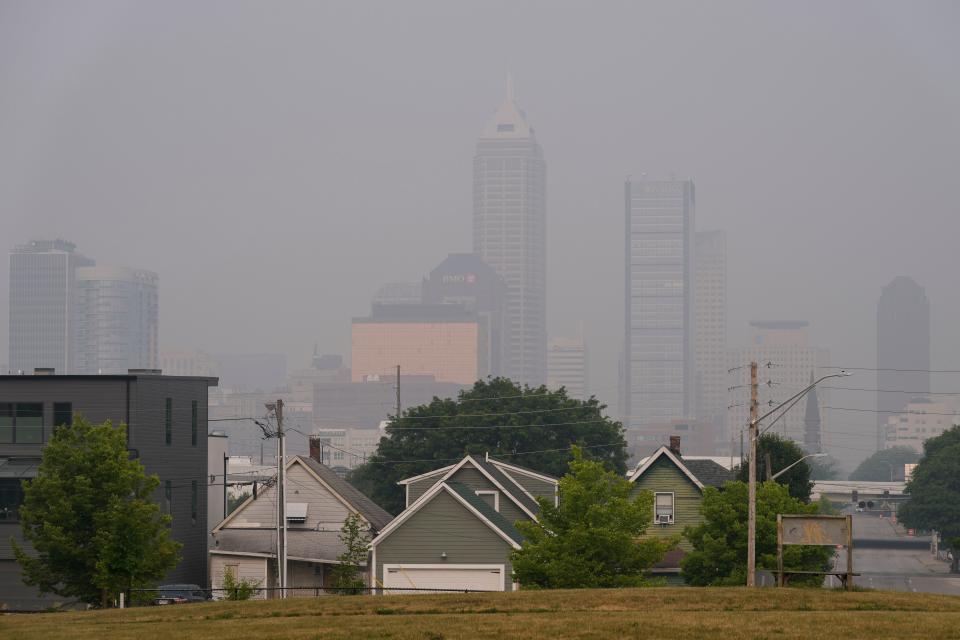Scrub Hub: Are your asthma and allergies getting worse? This might be why.
It’s spring, so that means it’s the time for sneezing and scratchy throats. But there actually may be more to difficulty breathing this time of year than just allergies.
There are a variety of factors that can influence the ability to take a breath: allergens, air pollution and even climate change. All of those things can exacerbate health issues like asthma.
In fact, May is Asthma Awareness Month. And just a couple weeks ago, the American Lung Association released its annual State of the Air report looking at air quality across much of the country’s most populated areas — central Indiana didn’t fare too well.
For this latest Scrub Hub, we bring all these things together to answer the questions: Are my asthma and allergies getting worse?

Answer: Air pollution, allergens and asthma on the rise
The air quality in central Indiana is some of the worst in the nation, according to federal data and the latest State of the Air report. The Indianapolis metro area is the 11th most-polluted city across the U.S. when it comes to annual particulate matter, as ranked in the Lung Association’s report.
In Marion County and the surrounding areas, that’s the nature of the built environment, said Tiffany Nichols, the director of advocacy for the association in Indiana. Vehicle emissions as well as industry are some of the main sources of particulate matter.
“All of that transportation is leaving behind unhealthy air and that is impacting the people right in the middle of it,” Nichols said. “Dirty air is a dangerous public health issue that doesn’t get talked about as much as it should.”
Air pollution: Wildfire smoke pushes Indy air quality to dangerous level? Here's how you can stay safe.
When breathed in, those small particles can get deep into the lungs and even the bloodstream, according to the U.S. Environmental Protection Agency. Numerous studies have linked exposure to particle pollution to health problems such as decreased lung function, nonfatal heart attacks and also premature death in people with heart or lung disease.
Air pollution can also seriously aggravate asthma, said Dr. Nadia Krupp, a pediatric pulmonologist and the director of the Riley Asthma Program. Krupp sees a variety of cases, from mild to very severe. She works with families to understand the type of asthma, aggravating factors and how best to control them.
“In a general sense, asthma is one of the chronic diseases most closely tied to the environment compared to other diseases,” she said.
Another environmental factor that can aggravate asthma and other cardiovascular diseases are allergens – think pollen, dust, fungal spores, etc.
Scrub Hub: Can indoor air quality hurt my health more than the outdoor air?
Both allergies as well as air pollution are being exacerbated by climate change, research shows.
For example, wildfires are becoming more prevalent, especially in areas that have not historically suffered from the natural disaster. The Canadian Wildfires last summer were felt all the way down in Indiana and beyond, with a smoky haze hanging over the city and making it difficult to breathe.
Air pollution and changing weather patterns also are creating the conditions for worsening allergy seasons. Smog can impact the dispersal of pollen and other allergens, leaving them stagnant in the air.
The milder winters also means we aren’t seeing the freezes of the past that were helpful in decreasing mold spores and other allergens. Quite the opposite, the wetter winters and springs are creating better conditions for mold and also extending the allergy season as things bloom sooner.

All of these factors can come together and make asthma and other health problems much worse, Krupp said.
While the most recent data, which is several years old, shows asthma holding steady, that still is somewhat concerning for Krupp.
“You would think that with all the medical interventions, we would imagine that hospitalizations and things like that would be going down instead of staying steady,” she said.
So if you suffer from asthma and allergies and feel like things are getting worse — or at least not better — now you know why.
Both Krupp and Nichols said it is up to cities, states and even the federal government to do more to protect people’s health. That could mean creating more green spaces or implementing incentives and regulations to improve air quality, they said.
If you have any more questions about asthma, air pollution or any other topic, please ask us! You can submit a question to the Scrub Hub through the Google form below.
Can’t see the form? Click here.
Call IndyStar reporter Sarah Bowman at 317-444-6129 or email at sarah.bowman@indystar.com. Follow her on Twitter and Facebook: @IndyStarSarah. Connect with IndyStar’s environmental reporters: Join The Scrub on Facebook.
IndyStar's environmental reporting project is made possible through the generous support of the nonprofit Nina Mason Pulliam Charitable Trust.
This article originally appeared on Indianapolis Star: Climate change might be making your asthma, allergies worse. Here's why.

